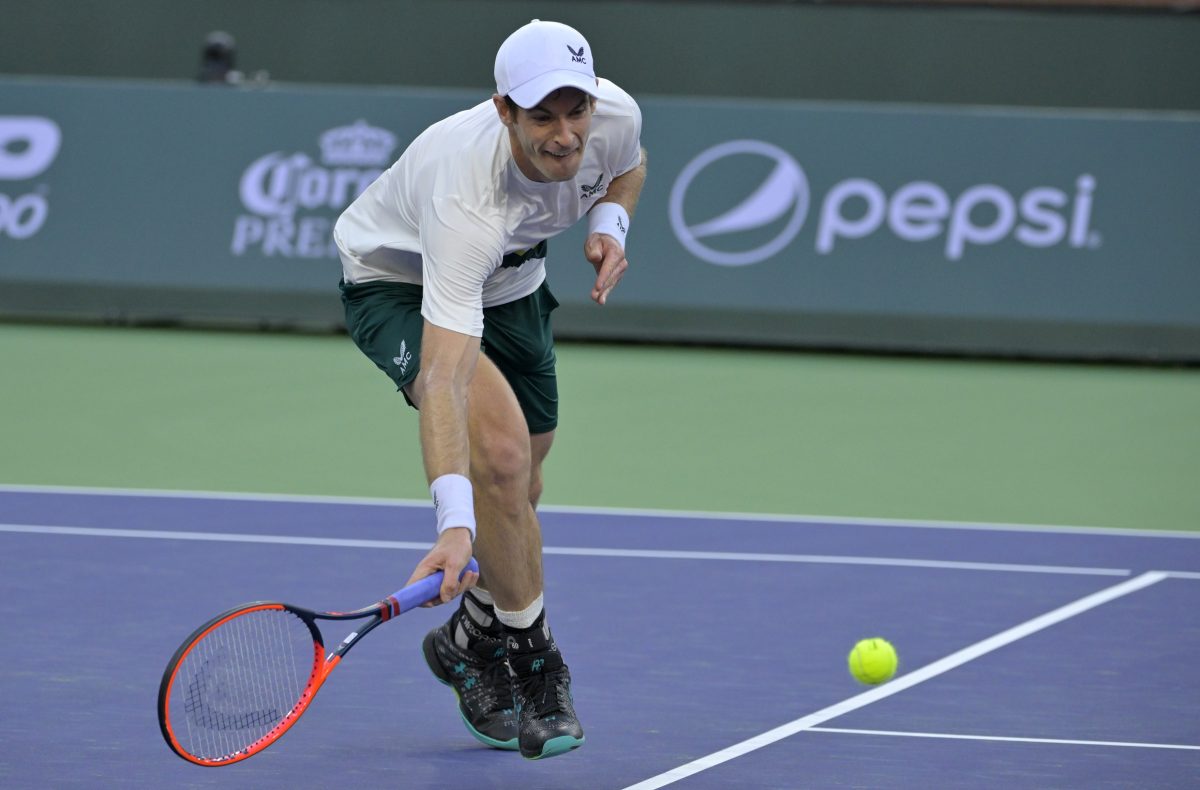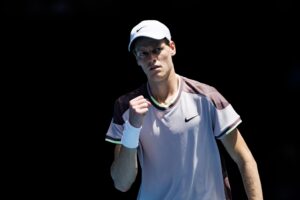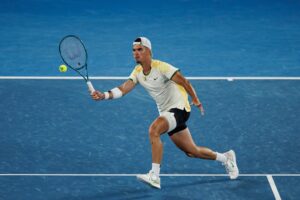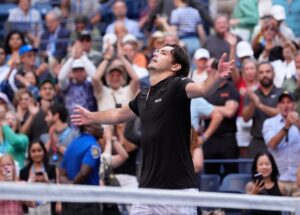Great Britain has survived in the Davis Cup by the skin (which is really microscopic bacteria) of its teeth. But having done so, can it make the most of its good fortune and fighting spirit to triumph again in the premier team tournament in men’s tennis, for the first time since 2015?
Great Britain at the 2023 Davis Cup
One of the Greatest British-French Contests Since Agincourt
Having won the first two ties of the qualifying tournament, against Australia and Switzerland, Britain knew that it still had to beat France to guarantee qualification for the final eight of the Davis Cup in Malaga at the end of November. Nevertheless, captain Leon Smith and his men could not have imagined that to do so they would have to secure victory in what would ultimately prove to be one of the greatest British-French contests since Agincourt (a battle, by the way, that according to Shakespeare was partly caused by a French gift of tennis balls to Henry V, which he thought was facetious).
The first match of the tie was a classic clash between a rising star and an experienced veteran, as new French sensation Arthur Fils (whose name can now definitely be added to the long list of brilliant young male tennis players coming through) faced Britain’s wily old campaigner Dan Evans.
Fils had first come to prominence early this summer by winning in Lyon, the last major warm-up tournament before the French Open, in the final of which he had virtually destroyed Argentina’s Francisco Cerúndolo (who himself is another rapidly emerging player) in straight sets. And for much of the Davis Cup match against Evans, it looked as if Fils would repeat that trick, as he won the first set and then went a break up in the second.
Then Evans, whose form this year has literally been like a rollercoaster (a long flatline followed by the enormous high of winning his first ever ATP 500 event in Washington), fought back superbly. Roared on by the enormous 13,000-plus crowd in Manchester (which is officially the largest ever for a Davis Cup tie in Britain), he eventually turned the tables on his much younger opponent to win 3-6 6-3 6-4.
However, when Cameron Norrie lost his second singles match of the week to Ugo Humbert, thus continuing his own extended slump in form, it meant that Britain had to win the doubles match to secure victory in the tie and with it qualification for the last eight in Spain. And for Evans, who now forms Britain’s first-choice doubles pairing with Neal Skupski (a Wimbledon Men’s Doubles champion with his regular partner, Wesley Koolhof of the Netherlands, and a recent World No.1 in doubles), it was an almost exact rerun of his singles match earlier in the day.
Indeed, it seemed as if Evans had been wiped out by his efforts in the singles as he and Skupski were breadsticked (winning only a single game) in the first set against Nicolas Mahut and Édouard Roger-Vasselin, the even more experienced French pairing. Yet just as he had against Fils in the singles, Evans rallied brilliantly to raise his and Skupski’s game, at least in part because he was receiving such wild vocal support from the crowd.
What followed was Davis Cup tennis at its best as Evans and Skupski somehow fought off four match points against them before eventually winning two successive tie-breaks to win the match 1-6 7-6(4) 7-6(6). Mahut, Roger-Vasselin and the considerable French contingent in the crowd looked stunned at the end, somehow wondering how they had failed to win a match that they had dominated for so long. Yet Evans and Skupski eventually showed why Leon Smith has been able to dispense with the services of other illustrious British doubles players such as Joe Salisbury and Jamie Murray.
Andy Murray Has Great Memories of 2015
Great Britain’s win evoked memories of their last Davis Cup triumph, which was in 2015. Then, of course, it had been Britain’s first Davis Cup win in 79 years, or very nearly a century, as Andy Murray, who was at his peak as a player (before all of his seemingly interminable injuries began), almost defeated Belgium single-handed in the final in Ghent. He played both singles and doubles (with brother Jamie) and thus directly contributed to the three points Britain secured to win the title.
Nearly a decade on, so much has changed and not just with the British team, which is no longer nearly so dependent on the Great Scot. The format of the Davis Cup itself has also completely changed, with home and away ties throughout the year giving way, through various iterations, to the current format in which there are four groups of four teams battling it out in the last 16, from which the top two teams in each group progress to the last eight tournament. In that tournament, the quarterfinals, semi-finals and final are all played out in a single week.
If Murray was virtually a one-man team in 2015, the hope now is that Great Britain’s far greater depth in 2023 (which is so great that Murray himself only played one singles match during the last week) will allow the team to give him the spectacular send-off from tennis that he deserves. Murray has tried and failed over the last few years to have one last deep run at the Majors, but it may just be that his final great moment in tennis will come in a team competition rather than at a Grand Slam event.
But Novak Djokovic Has Even Greater Memories of 2010
The pairings for the last eight event of the Davis Cup will be held tomorrow (Tuesday September 19th), but due to the nature of the draw Britain already knows that it will face either Italy or Serbia in the quarterfinal. Naturally, Brits will hope that they draw the Italians, who may have Jannik Sinner back for Malaga but will still be a less daunting opponent than any side containing Novak Djokovic.
If Andy Murray has great memories of 2015, then Novak Djokovic has similarly wonderful memories of 2010, when Serbia won the Davis Cup for the first and so far only time. Indeed, for all that the 2015 Davis Cup triumph topped off Murray’s own personal golden age (between 2012 and 2015, during which time he won the US Open, Wimbledon twice, and Olympic Gold), the 2010 triumph was arguably even more important for Djokovic.
He may have won his first Major Singles title in Melbourne in 2008, but he has always maintained that winning the Davis Cup with Serbia at the end of 2010 was even more important for his career. Coupled with the gluten intolerance diagnosis that finally brought to an end all his physical problems, that team triumph with his home country set him on the path to the almost complete domination of men’s tennis that he has enjoyed ever since.
Murray vs Djokovic In 2023?
Even if Great Britain does not draw Djokovic and Serbia in the quarterfinal, the likelihood is that they and every other competing nation will have to beat them at some point to win the Davis Cup, especially now that Spain and Carlos Alcaraz (who withdrew from the Spanish team last week because of injuries and fatigue) will not be in Malaga.
Thus there is the intoxicating possibility that the last eight of the 2023 Davis Cup might just see the last ever really meaningful encounter between Andy Murray and Novak Djokovic. If that should happen, then for all the often justifiable complaints about the new format of the Davis Cup (notably that it immensely favors the home teams in the last 16 groups, such as Great Britain), this year’s finale will be absolutely unmissable.
Main Photo Credit: Jayne Kamin-Oncea-USA TODAY Sports






